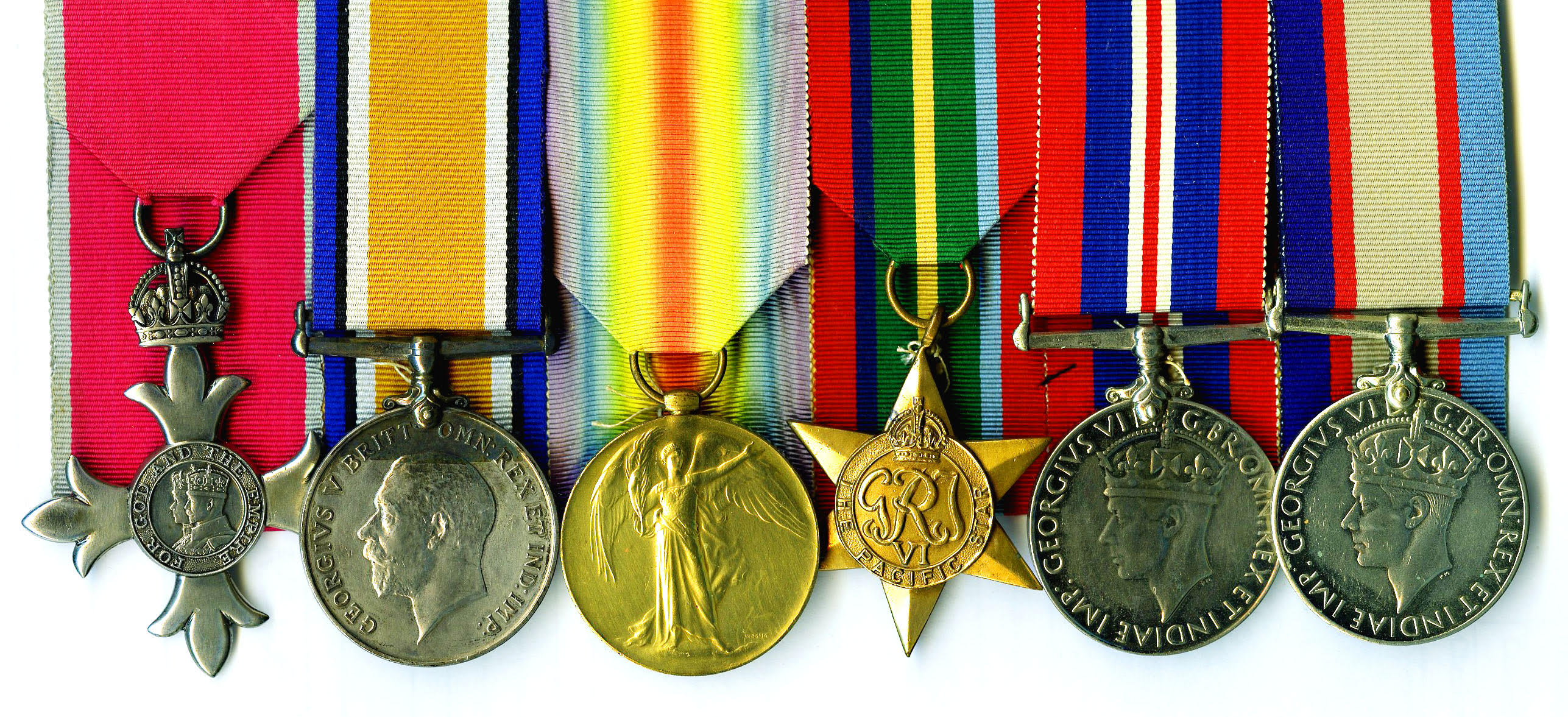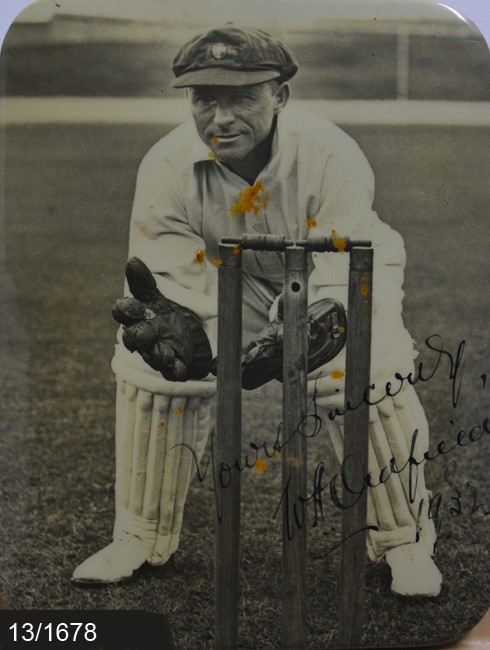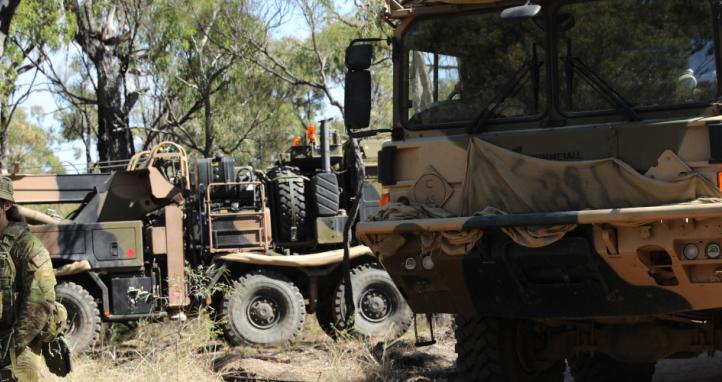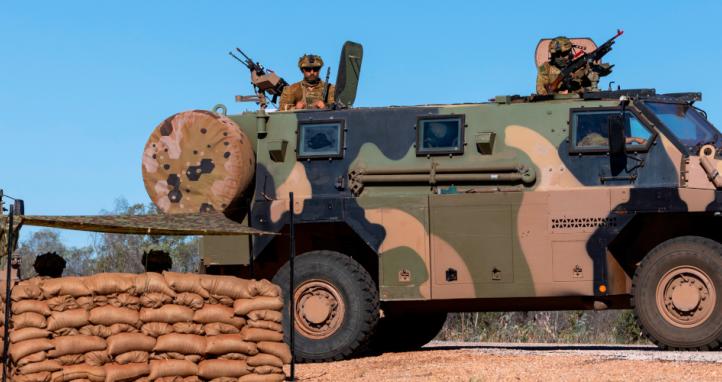This month we are featuring the medals of Major William Albert Stanley (Bert) Oldfield.

Military Medals
- Order of the British Empire (Member) (Civil)
- British War Medal (1914-1918)
- Victory Medal
- Pacific Star
- British War Medal (1939-1945)
- Australian Service Medal (1939-1945)
Born on 9th September 1894 in Alexandria, New South Wales, William Albert Stanley (Bert) Oldfield was the son of John William Oldfield and his wife, Mary Oldfield (née Gregory).
Early Life
Bert was educated at Newtown and Cleveland Street, Surry Hills Superior Public Schools. He took an interest in playing cricket and became an all-rounder while attending Cleveland Street School. Later, at Glebe and then Gordon Cricket Clubs, Bert became a regular wicket-keeper at which he excelled and which led him to become a famous Australian Test Cricketer.
Military Career
Bert enlisted in the Australian Imperial Force for war service in September 1915. He was posted as a Private soldier to the 1st Australian Dermatological Hospital and in December 1915 he embarked in Sydney for overseas service.
The 1st Australian Dermatological Hospital was set up in Abbassia, Cairo, Egypt where patients were treated until September 1916. That month, the hospital was re-located to the village of Belford, Wiltshire, England.
On 8 June 1917 Bert Oldfield was transferred to the 15th Australian Field Ambulance, the primary role of which was medical evacuation of soldiers from infantry and other combat unit regimental aid posts close to the front line.
At the time, the 15th Field Ambulance was not in a combat area but was operating as the 5th Australian Division Rest Camp on a farm on the south-eastern outskirts of Albert, a town in the Somme Department, northern France. The unit moved shortly afterwards to Contay, a village west of Albert and set up a Corps Mumps Station.
By early August 1917, the 15th Field Ambulance was located at Sercus, a village in the Nord Department, northern France, where the unit undertook further training ahead of imminent offensive operations with the 15th Australian Infantry Brigade.
The Field Ambulance commenced evacuating soldiers east of Ypres in what developed into the Battle of Polygon Wood. On 26 September 1917, Bert was severely wounded and was evacuated to England. He recovered by January 1918 when he was transferred to the 3rd Australian Auxiliary Hospital at Dartford, Kent. In March 1918 he was again transferred, this time to the AIF Kit Store at Hammersmith, London. He was promoted to Corporal in September 1918.
Bert Oldfield was selected as wicket-keeper for the AIF cricket team that toured England and South Africa in 1919 and was discharged from the Army in March 1920 upon returning to Australia.

Australian War Memorial / D00685
Inter-War Years
Becoming successful in business, Bert Oldfield opened a sports store in Sydney in 1922 and in 1929 married Ruth Maud Hunter at St Jude's Anglican Church, Randwick in Sydney’s eastern suburbs.
It was also in 1922 that Bert became wicket-keeper for the Australian Test Cricket Team and continued to play until 1938.

Continued Military Career
In November 1939 Bert Oldfield was commissioned as a Lieutenant in the 17th Infantry Battalion, Citizen Military Forces. He transferred to the AIF in April 1941 and worked with the Australian Army Amenities Service, was promoted to Captain the same year then to Major in 1943.
Bert was posted to Headquarters, Second Australian Corps at the time of his discharge from the AIF in March 1946.
Post Discharge
In 1970 Bert was named in the Queen’s Birthday Honours List as a Member of the Order of the British Empire for services to cricket.
Survived by his wife and two daughters, Bert Oldfield passed away on 10 August 1976 aged 81 at his home of many years in Killara, New South Wales.
Bert Oldfield still ranks in the top ten Australian Wicket Keepers with 130 dismissals over a Test Cricket career of 54 matches.
Bert Oldfield’s cricket bat is on display at the Army Museum of New South Wales.
A copy of Bert's war service record can be found at the National Archives of Australia.









